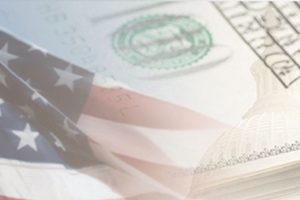By Richard J. Baier, President and CEO, Nebraska Bankers Association
NEBRASKA BANKING FRIENDS:
Nebraska bankers all too often have a front-row seat when it comes to witnessing the financial understanding, or lack thereof, of their fellow Nebraskans and customers. We know that poor financial decision making can lead to extreme personal and professional hardships. Acquiring a solid understanding of financial concepts is an important skill set that is learned starting at an early age, both at home and through our education systems. While Nebraska has made strides in recent years to improve the financial education efforts within our school systems, more needs to be done!
In 2018, your NBA team, along with key bankers from across the state, worked with the Nebraska Department of Education and other interested stakeholders to modernize and enhance the state’s K-12 business curriculum standards. These standards outline the goals and expectations for business classes taught by all Nebraska schools, including important classes such as economics and personal finance. Unfortunately, these business standards only apply to business classes, which are optional for our Nebraska students. In addition, these classes are typically limited to high school students.
More recently, the NBA and banking leaders again worked proactively with the education community to enhance the state’s social studies educational standards. These social studies standards incorporate the foundations of economics and finance for kindergarten through 12th grade. Concepts contained in these standards represent only a portion of the overall content, which also incorporates history, government, geography and politics. Likewise, the Nebraska social studies standards do not require a specific full credit class focused on economics or personal finance. Unlike Nebraska, five states plus the District of Columbia currently do not have any type of economics and finance requirements within their educational standards.
Every two years, the National Council on Economic Education conducts the Survey of the States, which evaluates the Economic and Personal Finance Education in our Nation’s Schools. Nebraska scores in the middle of the pack in these national comparisons. Twenty-one states, for example, require high school students to take a personal finance class. Similarly, 25 states now require students to take an economics class to graduate. Enrollment in a specific personal finance and/or economics course is not required by Nebraska educational standards. (https://www.councilforeconed.org/survey-of-the-states-2020/)
To supplement and encourage enhanced financial education, NBA member banks of all sizes offer a wealth of resources, programs, online platforms and classroom presentations. A number of Nebraska banks, for example, partner with NBA preferred vendor EverFi to offer the firm’s online platform. Other NBA members have created and offer their own financial education platforms. Similarly, bankers from across the state annually make hundreds of classroom presentations with a focus on practical advice and real-world experience. The NBA Personal Education Program (PEP – Soon to be Leaders in Financial Education) recognizes and rewards those NBA members who take their mission of supporting financial literacy in our schools extremely seriously. It can be argued that these tools are integral to education efforts in Nebraska.
Over the past year, members of the Nebraska Legislature have taken an increasing interest in the topic of financial education. Numerous senators from both rural and urban Nebraska have dialogued with our NBA team about how to improve financial education in Nebraska. Other leaders including Nebraska State Treasurer John Murante, have also doubled down on enhanced efforts. As a result of these continued discussions, Senator McKinney of Omaha (LB 452) and Senator Slama (LB 327) have both introduced legislation with the intention of increasing financial literacy efforts in Nebraska schools. Senator McKinney’s proposal deliniates several specific financial topics for incorporation into the state’s education standards, while Senator Slama’s legislative concept would require a semester-long personal finance class for all Nebraska high school students prior to graduation.
Numerous senators from both rural and urban Nebraska have dialogued with our NBA team about how to improve financial education in Nebraska.
It is too early to predict how these proposals might be considered and evaluated by the entire Nebraska Legislature, but it is clear the state is increasingly focused on this important issue. In the meantime, the NBA and our bankers will continue to offer information, support, and direction with the goal of creating smarter and more financially savvy Nebraskans.







